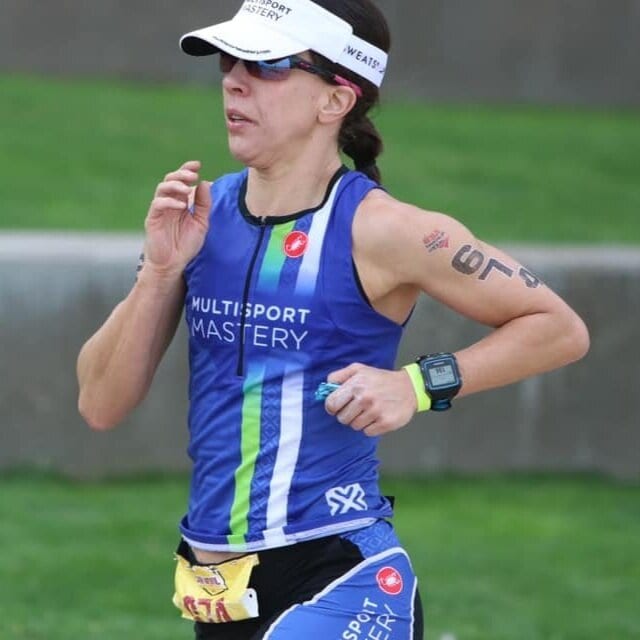
Pandemic Endurance: Coach Elizabeth Waterstraat craves the dark moments in races.
By Elizabeth Waterstraat, coach of the Train Like a Mother Triathlon and Heart + Sole Programs
As a coach, I’ve watched athletes of all ages from all over the world work through the past five months of the pandemic. Some thrive, others survive. Some mourn, others mount the resources they have to make the best of it. Which is right? Wrong? Not for me to say.
But I will say that right now, we are getting a glimpse of what happens for most athletes around mile 18 of the run of an Ironman. The beauty of this situation is that none of us actually has to do the Ironman, which saves us heck of a lot of money AND chafing!
If you’ve been to mile 18 of the Ironman marathon, you know that it’s about that time when the novelty—along with the adrenaline, caffeine and good vibes from spectators—has worn off. You’re tired. You’re mentally spent. And though you’ve done countless runs beyond this point, you have no idea how you are going to make it the next 6 to 8 miles. You’re on the edge of entering a very dark place.
My Mile 18 moment hit me during my first Ironman in Kona 2006. Around mile 20.
This is the point in the race where a few things are certain:
a) the Queen K is entirely uphill (not true)
b) the water isn’t cold enough (100% true)
c) the last 10K might as well be 100 miles away (arguable but probably true)
d) though you realize the awesomeness of distance you’ve come to get to that point, you have never been in such a soul-sucking, quad-bursting, head-hurting kind of pain.
As a coach, I know there’s no magical training session that prepares an athlete for this point. Sure, a hit of 5-Hour Energy can help, but even the most potent caffeine runs out when you’re out there for most of the day.
It’s at this point where a shift can happen.
Upon arriving here, many athletes stay stuck in the dark place. They continue to look behind longing for the energy, freshness and other things they had; or they narrow their focus inward (why is this feeling so hard for me?); or they worry about what lies ahead (how am I going to make it? when will I feel good again?). They stay frozen in these fears and feelings. They slow down, spin in circles and lose momentum.
A smaller group of athletes keep moving forward. To be clear: They were not any more prepared: They too are experiencing hardship, worries and drastic change. They too are in pain. However, they know that the only way out is through and to get through you need to keep moving forward.
They maintain a realistic hope about the situation. Yes, it is dark and frustrating. But they cling to the hope that good things are about to happen. They are not necessarily comfortable with that uncertainty, but comfortable with the discomfort because they’ve faced it head on many times before, and they’ve gone towards it to grow and learn.
I crave the dark moments in races. Not the victories or the PRs. Nah, I want to come into transition in a half Ironman and find that someone stepped on my race belt which is now a gooey mess of burst gels and very happy ants (true story). I live for those moments and the puzzle of figuring out what’s next.
Success comes from looking at that moment and saying I’ve been waiting for you. I’m ready.
Right now none of us are racing. But we have an incredible opportunity to work on what is required for race success. We are at mile 18 to 20 of the marathon. Legs are cramping. Stomach has gone south. Hottest point of the day. Every athlete, regardless of age or ability, reaches this point at some point in every race: A pivotal moment where challenge reveals character.
There is no secret to these moments. You do your best to view the challenge as an opportunity and not a threat You put one foot in front of the other and do the very best you can with what you have.
I’m not suggesting to simply pull up their race shorts and gets on with things. This stuff is hard. We are all struggling in some way: financially, emotionally, physically, socially. It’s easy to fall into a trap of ranking who has it worst, who has no right to complain but I have to ask: Does any of that make us or this situation any better?
Have compassion for yourself and empathy for others. Lean into the shift, send light into your dark. When you do, you’ll find a flow, a courage, a confidence.
Most of all, stay in the moment and savor it—after all, you’re doing a freakin’ Ironman.


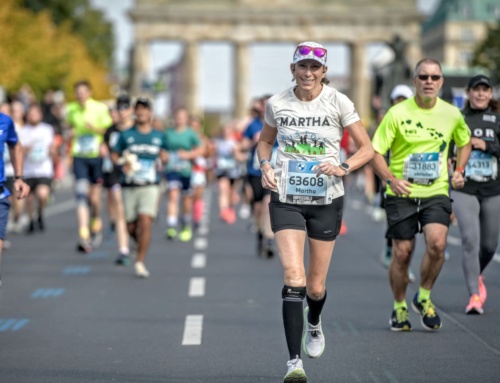
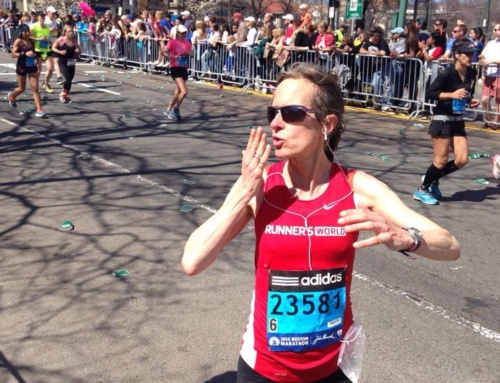
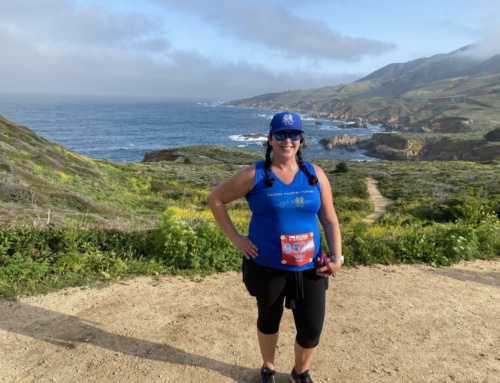
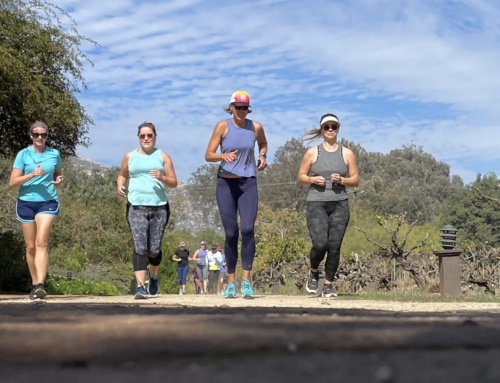
Wow – this was amazing to read. I shared it with my team at work as we feel like we’re running the ultimate race. With record volume, exhausting overtime, WFH challeges, pandemic stress, kids and barking dogs in our Zoom meetings -we feel like we never turn off to breathe. Mentality is huge right now and this helped put it into perspective. Thank you!
Wow. This. So much. Thank-you for the gentle reminder that holding onto our empathy is so very important. Thank-you for sharing your incredible words. Truly, thank-you. *hand to heart*
A huge thank you for this. It was just what I needed to read this morning and really helped me to snap out of my mehs & get out the door and off running.
A perfect read this morning, and such true words. The only way to the other side is through, and sometimes all you can do is put your head down, focus on what needs to be done, and do it, until the next obstacle comes up. But before you know it, the obstacles behind you are greater in number than the ones in front of you, adn you can see a glimmer of sunshine on the horizon, or at least the mile 24 sign, and you know that you are almost to the finish line. A glorious feeling if ever there was one.
I feel like we’re more realistically at mile 100 of the bike, unfortunately. At mile 100 I still didn’t know how bad it was going to get, but nor that I was going to find a reserve inside myself to make it to the finish. My deepest hole was at mile 13 of the run, and by mile 18 I could definitely visualize finishing. I think we’re way farther back in this race and we need to be ready to deal with anything it may throw our way. I can’t visualize yet how it ends, but I need to keep moving forward with the faith that it will.
Thanks so much for these words. I have been feeling down in the dumps today, struggling with my fears over the COVID situation and having students going back to school, not knowing when this will “end”, worrying about what the new “normal” will look like when it finally does, etc. I needed some words of encouragement to keep digging down and trying to be positive.
The spring pandemic combo of more sitting while working from home on top of more running because it was my sanity as well as the only exercise I could do has caused my hamstrings to tighten to the point of injury. What you said about moving forward because it’s the only way through rings true to me. So I’m focusing on healing the hamstrings–and everything else! Thanks for the reminder!
Thank you! very well written.
My husband and i have been trying a ton of different diets , but for years we were not successful. we literally tried almost every thing. Untill we tried PROVEN . It saved us . I lost 45 pounds in 3 months! Even though i cheated here and there, ( dont tell him that lol). Check it out its really worth it . Im going to put the link here ,so you dont have to waste 2 hours looking for it like I did https://bit.ly/3lY0uGc Thank me later!